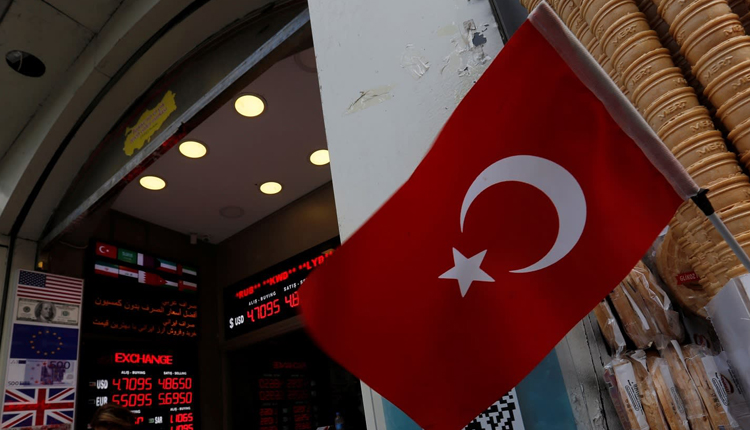Consumer price growth has hit a whopping 25 percent in Turkey, but the real challenge lies in the central bank not bowing to pressure to lower interest rates “prematurely” as the inflation rate starts to drop, analysts have warned.
Turkey witnessed a stronger-than-expected rise in inflation in October, with prices surging 25.2 percent year-on-year, marking the highest inflation rate in 15 years. Core inflation, which strips out volatile factors like energy and food prices, was similarly high. The headline rate is now far above the central bank’s target of 5 percent.
Inflation has largely been driven by the country’s “currency crisis” with the lira falling 30 percent against the dollar year-to-date. It had suffered a deeper rout in August when it was down 45 percent against the greenback, but has since recovered some ground. Currency depreciation has been a key factor behind Turkey’s inflationary pressures but other issues, including concerns over the central bank’s independence and a diplomatic crisis with the U.S., fueled those losses.
Traditionally central banks have raised interest rates to tackle inflation but Turkey’s bank is under pressure, notably from President Recep Tayyip Erdogan, to lower interest rates in order to stimulate spending, lending and economic growth. It defied the president by tightening its monetary policy stance in September, however, raising its benchmark one-week repo rate (its main policy rate) to 24 percent, and maintaining that rate in October.
Jason Tuvey, a senior emerging markets economist at Capital Economics, said Monday that he believes Turkey’s inflation rate has hit, or is close to, a peak and hence the central bank would be unwilling to tighten (increase interest rates) any further.
“As inflation starts to drop back sharply towards the middle of next year, we think the next move in interest rates will be down — we expect the benchmark one-week repo rate to be lowered from 24.00 percent at present to 20.00 percent by the end of next year,” he said in a research note.
But, he said, the risk was that the central bank could be tempted to lower rates prematurely.
“With the economy entering a deep recession, political pressure on the central bank to loosen policy is likely to mount and there’s a risk that the CBRT (Central Bank of the Republic of Turkey) embarks on an easing cycle even earlier (and more aggressively) than we currently expect, leaving the country’s long-standing inflation problem unchecked,” he said.
Brutal hard landing
Turkey is expected to experience a recession in 2019 with ratings agency S&P warning of a slump when it downgraded Turkey’s credit rating deeper into “junk” territory in August.
Explaining the rationale for the downgrade, S&P said it “reflects our expectation that the extreme volatility of the Turkish lira and the resulting projected sharp balance of payments adjustment will undermine Turkey’s economy. We forecast a recession next year.”
Timothy Ash, a senior emerging markets strategist at Bluebay Asset Management, said Monday that “Turkey is undergoing a brutal hard landing with the data suggesting a significant negative real GDP (gross domestic product) print in the year ahead,” he said in a note.
“I think the CBRT would be loathed to have to increase policy rates again if the inflation data continues to disappoint as this will just make the recession deeper. They will assume, rightly, that deflation and recession will eventually do the trick on inflation. But they need time.”
Source: CNBC
